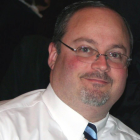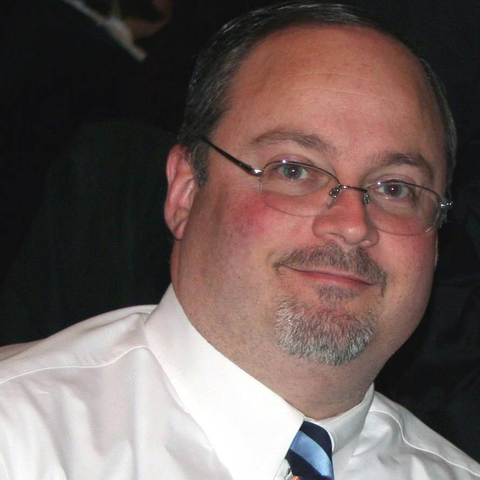 As Deputy Chief of the Cook Juvenile Probation and Court Services, I’m frequently asked about my work surrounding dual status youth — youth involved with both the child welfare and juvenile justice systems. Most often, I am asked why I feel there is a need to focus on this particular population of youth.
As Deputy Chief of the Cook Juvenile Probation and Court Services, I’m frequently asked about my work surrounding dual status youth — youth involved with both the child welfare and juvenile justice systems. Most often, I am asked why I feel there is a need to focus on this particular population of youth.
My answer is simple, although it is backed by decades of research indicating the complex challenges and unique characteristics of dual status youth, such as traumatic experiences, increased likelihood of being incarcerated and remaining incarcerated for longer periods, disparate treatment and representation of minority youth, and high rates of unaddressed mental health needs. Research supports the necessity for reform, but my reason for doing this work is Josh, Ricky, Shenese, Connor and Colin. I thank each of them for sharing their experiences, for making me recognize the critical need for reform and for helping me understand how we can improve our systems. I am a better person and a better juvenile justice professional because of them. These youth are why we do this work.
If a child must be removed from his or her home, the child should only be placed in a safer environment. Unfortunately, that was not Josh’s experience. Josh experienced much trauma in his young life. He was placed in foster care at age 5, but then physically abused by his foster parents and eventually moved to a different placement. Over the next seven years, Josh was placed in 11 different foster homes, had 11 different caretakers, and went to 11 different schools. By the time I met Josh, he had no academic support, let alone an educational advocate. Not surprisingly, he had fallen behind in school and had some “conduct” issues. He was also committing retail thefts. This is when Josh became my foster son. I later adopted him and am extremely proud of who he is. He overcame many issues, became a star on both the basketball and football team in high school and went on to college. He later enlisted in the Army and served in Afghanistan; he was highly decorated and rose to the rank of Sergeant. Josh now lives with his girlfriend and son in Chicago. He is my hero, and why I am dedicated to dual status youth reform.
Like most juvenile justice professionals, I’ve met many dual status youth and have been impacted by their stories. I’m continuously inspired by the strength and resilience that is prevalent in this population. I’m reminded of Ricky, who was put on probation for committing a battery in a group home. Despite the trauma he experienced in his past and his numerous placements, his positive outcomes remind me that all youth deserve the opportunity to thrive. I think of Shenese who, after being kicked out of her adoptive home and trafficked by a pimp, demonstrated her bravery and courage when she testified against her pimp in federal court, to better her life and to help other girls do the same. On the other hand, I also think of Colin and Connor, identical twins who — prior to being adjudicated for sexual misconduct and registered as sex offenders — were removed from their biological home due to neglect and suspected sexual abuse, then placed in a foster home where they were sexually abused by their foster father. They remind me that our work is far from complete and of the critical need for sustainable reform.
These youth helped me understand the unique characteristics and needs of dual status youth. Imagine going through childhood without an adult that you trust, or having no one advocate for you when you need support or not knowing where you will sleep next week. Most of us had parents that took care of our needs. If we made a mistake, as many of us did, and committed a crime, they would have been there for us. Many of these youth do not have that.
I am motivated by the tremendous strides in juvenile justice reform seen nationwide and proud to be part of this work. The field of knowledge continues to grow and spread through the leadership of organizations like Robert F. Kennedy National Resource Center for Juvenile Justice, led by RFK Children’s Action Corps, and Georgetown University. Powerful groups, such as the MacArthur Foundation and Casey Family Programs, recognize the importance of juvenile justice reform and continue to support programming and research initiatives to sustain these efforts. Yet, it is the shared responsibility of all juvenile justice professionals to ensure that dual status youth in our communities are not lost. Do not sit on your laurels because these cases are difficult or because it is difficult to change these systems. Instead, challenge your organizations to collaboratively take on reform to improve the lives of the children we serve.
Mark Werner is the Deputy Chief of the Clinical Division for the Cook County Juvenile Probation and Court Services. Mr. Werner is a member of the Dual Status Youth Practice Network, formed by the Robert F. Kennedy National Resource Center for Juvenile Justice. Mark and his wife are the proud parents of three children, proud grandparents of one grandson, and proud former foster parents of quite a few wonderful former foster youth.

To see how other states are working on the issue of dual status youth, check out a recent NCJJ publication on child welfare and juvenile justice systems integration http://www.ncjj.org/pdf/JJGPS%20StateScan/Systems%20Integration%20State%20Scan%202014_3.pdf